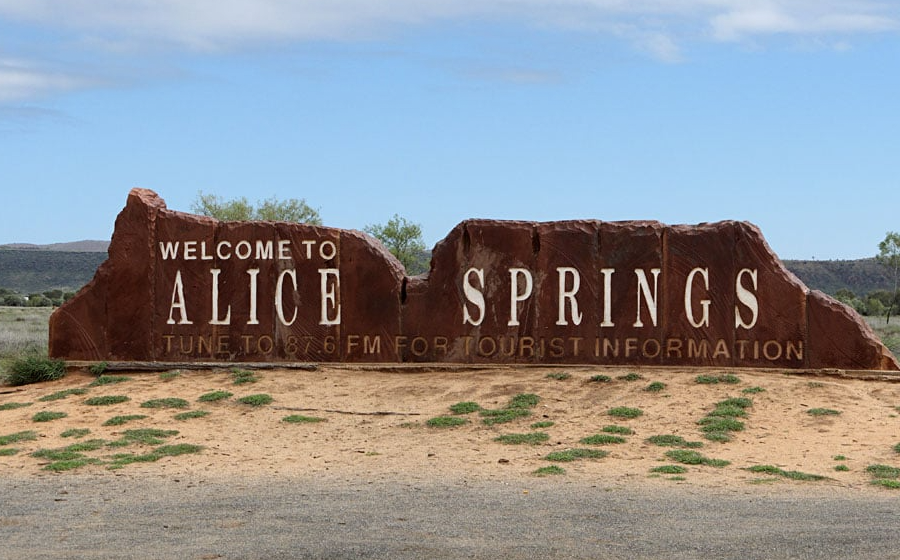Property crime in Alice Springs is at an all-time high and domestic violence offences in the town have almost doubled in the past three years, according to a report by the Central Australian Regional Controller.
Prime Minister Anthony Albanese and Chief Minister Natasha Fyles tasked Dorrelle Anderson with compiling a report on alcohol-related harm in Alice Springs after the Mr Albanese visited the town last month.
Her report shows the number of property offences in a 12-month period reached a new high of 8,222 offences in the 12 months ending November 2022.
“This represents an increase of 82 per cent compared with the 12 months ending November 2019 and accounted for 30 per cent of total NT property offences in the last 12 months,” she wrote.
Alcohol-related domestic violence offences increased by 96.7 per cent over the same period.
“NT Police confirms that domestic violence call-outs is one of, if not, their biggest single job,” she wrote.
“Given the importance of getting to the victims as soon as possible, these jobs take top priority.
“Higher numbers of domestic violence offences – as recorded in Alice Springs – therefore, mean that less Police are immediately available to respond to other jobs, including property offences.”
Ms Anderson said she had compared 2022 data to 2019 as there had been a significant increase in alcohol-related harm since the onset of the Covid-19 pandemic.
In March 2021 a Sky News Australia investigation based on freedom-of-information documents revealed there had been a significant rise in alcohol-fuelled violence attributed to the former Coalition Government’s decision to double welfare payments and allow early access to superannuation during the pandemic.
The investigation revealed an increase in domestic violence, legal and illegal gambling, the sale of used cars for inflated prices and a rise in sales of alcohol on the black market.
At the time, Northern Territory Police Commissioner Jamie Chalker told Sky News police had seen bottles of Bundaberg Rum selling for up to $700 on the black market and up to $50,000 being bet between Aboriginal Territorians in card games being played in and around Alice Springs and in other communities.
Ms Anderson’s report confirms this trend.
“Anecdotal evidence suggests that COVID was a significant contributor to the rise in assaults during this period, specifically the economic support payments, the ability to access superannuation, JobKeeper and regular COVID supplement payments,” she wrote.
“It was also reported during this time that a large number of remote community members were travelling to urban centres to consume and purchase alcohol.”
The report found little evidence of an increase in alcohol-related harm in Alice Springs in the first four months after alcohol restrictions in town camps were lifted in July last year.



